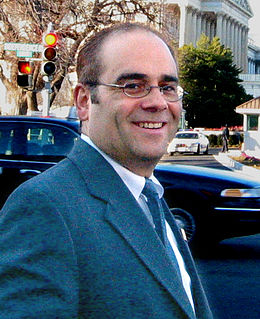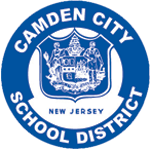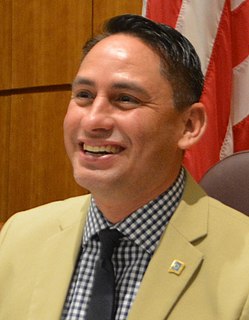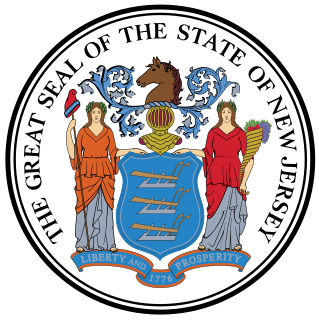
Trenton is the capital city of the U.S. state of New Jersey and the county seat of Mercer County. It briefly served as the capital of the United States in 1784. The city's metropolitan area, consisting of Mercer County, is grouped with the New York Combined Statistical Area by the United States Census Bureau, but it directly borders the Philadelphia metropolitan area and was from 1990 until 2000 part of the Philadelphia Combined Statistical Area. As of the 2010 United States Census, Trenton had a population of 84,913, making it the state's 10th-largest municipality in 2010 and 2020, after having been the state's ninth-largest municipality in 2000. The population declined by 490 (-0.6%) from the 85,403 counted in the 2000 Census, which had in turn declined by 3,272 (-3.7%) from the 88,675 counted in the 1990 Census. The Census Bureau's Population Estimates Program calculated that the city's population was 83,203 in 2019, ranking the city the 413th-most-populous in the country.

Hamilton Township is a township in Mercer County, New Jersey, United States. It is the largest suburb of Trenton, New Jersey. The township is within the New York metropolitan area as defined by the United States Census Bureau, but directly borders the Philadelphia metropolitan area and is part of the Federal Communications Commission's Philadelphia Designated Market Area. As of the 2010 United States Census, the township had a total population of 88,464, reflecting an increase of 1,355 (+1.6%) from the 87,109 counted in the 2000 Census, which had in turn increased by 556 (+0.6%) from the 86,553 counted in the 1990 Census. The township was the state's ninth-largest municipality in 2010 and 2020, after having been ranked 10th in 2000. The township is located immediately east of the city of Trenton, the state's capital.

The No Child Left Behind Act of 2001 (NCLB) was a U.S. Act of Congress that reauthorized the Elementary and Secondary Education Act; it included Title I provisions applying to disadvantaged students. It supported standards-based education reform based on the premise that setting high standards and establishing measurable goals could improve individual outcomes in education. The Act required states to develop assessments in basic skills. To receive federal school funding, states had to give these assessments to all students at select grade levels.
Bret D. Schundler is an American Republican politician from New Jersey. Schundler was the mayor of Jersey City from 1992 until 2001. Schundler was the city's first Republican mayor since 1917. He ran for Governor of New Jersey in 2001 and 2005.
The High School Proficiency Assessment was a standardized test that was administered by the New Jersey Department of Education to all New Jersey public high school students in March of their junior year until 2014-2015 when it was replaced by the PARCC. Together with the New Jersey Assessment of Skills and Knowledge, which was administered in grades 3-8, the HSPA was part of a battery of tests used to assess student performance in New Jersey's public schools.
The District of Columbia Public Schools (DCPS) is the local public school system for the District of Columbia, in the United States. DCPS should not be confused with the independently governed District of Columbia Public Charter Schools (DCPCS), which also operates in the District of Columbia.

Walter Reed Gusciora is an American Democratic Party politician who has served as the mayor of Trenton, New Jersey since 2018. He previously served from 1996 to 2018 in the New Jersey General Assembly, where he represented the 15th Legislative District. He also served as the prosecutor for Lawrence Township. He defeated businessman Paul Perez to become Mayor of Trenton in 2018, earning 52 percent of the vote in a runoff election on June 12 since no candidate won the 50 percent threshold or more in the May 8 election.
Abbott districts are school districts in New Jersey that are provided remedies to ensure that their students receive public education in accordance with the state constitution. They were created in 1985 as a result of the first ruling of Abbott v. Burke, a case filed by the Education Law Center. The ruling asserted that public primary and secondary education in poor communities throughout the state was unconstitutionally substandard. The Abbott II ruling in 1990 had the most far-reaching effects, ordering the state to fund the (then) 28 Abbott districts at the average level of the state's wealthiest districts. The Abbott District system was replaced in 2007 by the New Jersey Schools Development Authority.
The New Jersey Assessment of Skills and Knowledge (NJASK) was a standardized test given to all New Jersey public-schooled students in grades 3-8 during (usually) March, April, or May, and was administered by the New Jersey Department of Education.
The Alpine Public School District is a community public school district serving students in kindergarten through eighth grade in the Borough of Alpine in Bergen County, New Jersey, United States.
The Englewood Public School District is a comprehensive community public school district that serves students in pre-kindergarten through twelfth grade from Englewood, in Bergen County, New Jersey, United States. The district's offices are in the Administration Building at the Russell C. Major Liberty School.

Camden City School District is a public school district that serves students in pre-Kindergarten through twelfth grade from the city of Camden, in Camden County, New Jersey, United States. The district is one of 31 former Abbott districts statewide that were established pursuant to the decision by the New Jersey Supreme Court in Abbott v. Burke which are now referred to as "SDA Districts" based on the requirement for the state to cover all costs for school building and renovation projects in these districts under the supervision of the New Jersey Schools Development Authority. In 2013, after years of requests from local officials, New Jersey intervened in Camden City, making the school district state-run under the leadership of Superintendent Paymon Rouhanifard.
Asbury Park Public Schools is a comprehensive community public school district headquartered in Asbury Park, New Jersey, United States, serving children in pre-Kindergarten through twelfth grade. The district is one of 31 former Abbott districts statewide that were established pursuant to the decision by the New Jersey Supreme Court in Abbott v. Burke which are now referred to as "SDA Districts" based on the requirement for the state to cover all costs for school building and renovation projects in these districts under the supervision of the New Jersey Schools Development Authority. Students from Allenhurst and Interlaken attend the district's schools as part of a sending/receiving relationship. In July 2014, the New Jersey Department of Education approved a request by Interlaken under which it would end its sending relationship with the Asbury Park district and begin sending its students to the West Long Branch Public Schools through eighth grade and then onto Shore Regional High School. Students from Deal had attended the district's high school as part of a sending/receiving relationship that was terminated and replaced with an agreement with Shore Regional.
CREATE Charter High School was a four-year public high school that operated under a charter granted by the New Jersey Commissioner of Education. The school was run independently of the Jersey City Public Schools since it opened in September 2001 and was shut down in June 2010 after receiving notice from Acting Commissioner of Education Bret Schundler that the charter would be withdrawn as the school had failed to achieve its goals, including having less than 5% of graduating seniors reaching the proficient level on the language arts and mathematics components of the High School Proficiency Assessment.
The Deal School District is a community public school district that serves students in kindergarten through eighth grade from Deal, in Monmouth County, New Jersey, United States. The school was established in September 1953.

Henry C. "Howie" Morales is an American politician and educator serving as the 30th Lieutenant Governor of New Mexico. A member of the Democratic Party, he previously served as the New Mexico State Senator from the 28th district, which includes Catron County, Grant County and Socorro County, from 2008 until 2019.

The New Jersey Department of Labor and Workforce Development is a governmental agency of the U.S. state of New Jersey. The New Jersey Civil Service Commission is an independent body within the New Jersey state government under the auspices of the department.
The Partnership for Assessment of Readiness for College and Careers (PARCC) is a consortium featuring two states, the District of Columbia, the Department of Defense Educational Activity, and the Bureau of Indian Education, that work to create and deploy a standard set of K–12 assessments in Mathematics and English, based on the Common Core State Standards.

46 states initially adopted the Common Core State Standards, although implementation has not been uniform. At least 12 states have introduced legislation to repeal the standards outright, and 5 have since withdrawn from the standards.
The International Academy of Trenton (IAT) was a SABIS charter school in the city of Trenton, New Jersey. It was the only school in the now defunct International Academy of Trenton School District, which was a separate governing body from Trenton Public Schools. The school was planned to become a kindergarten through 12th grade school.








